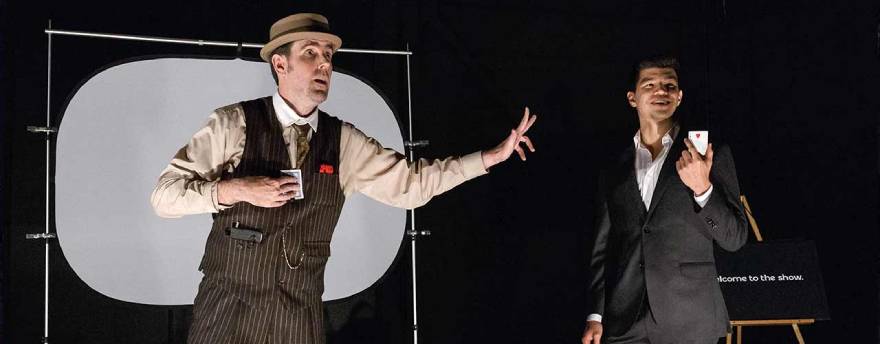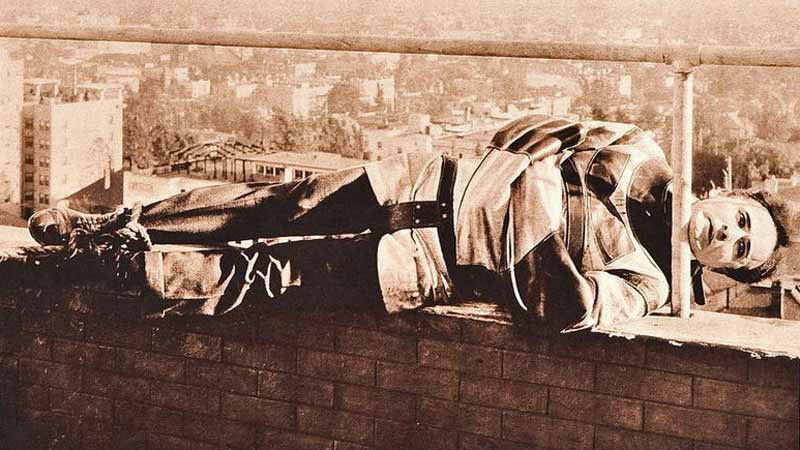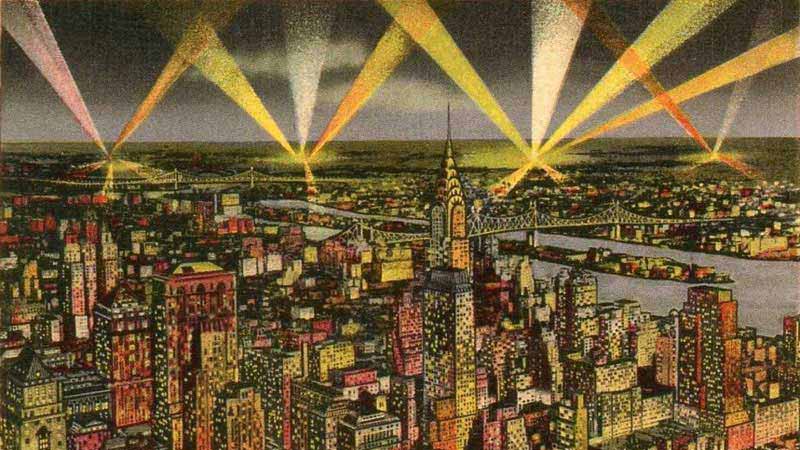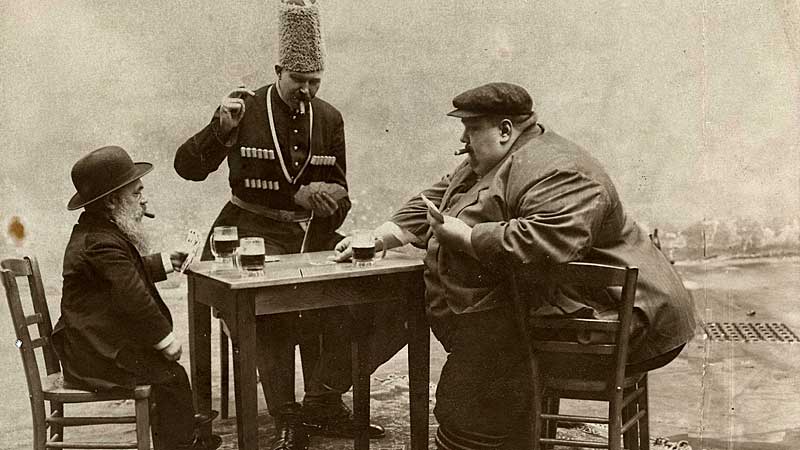Will Given's "SOS: You NEED a Magic Director!" Podcast Interview
by Roland Sarlot and Christian Painter

What We'll Explore
Will Given shares important details on working with a magic director including who needs one, achieving your artistic vision, working on character and direction, getting ready, how to find one, and how to make sure the director is engaged with your work.
Who is Will Given?
Actor and director Will Given performed in scores of stage productions and later earned a double doctorate in theater and drama. Today, he's a magic consultant, magic director, and professor at the University of California.
Running Time:
The following interview has been edited and condensed for clarity.
What you can do
You are welcome to share up to 500 words of the below transcript in a non-commercial purpose provided you credit and link back to our site like this: "The Magic Oracle Business Podcast".
The Interview
Roland Sarlot: On this episode of the Magic Business Podcast, you'll hear this and more...
Will Given: You know what, I know this seems like a bit kind of "out there" right now, but let's try this. Let's see what we can discover. Because the fact is, you may not end up going that direction in establishing the structure, the framework, the tone of your show, but you may also start discovering something about yourself as a character. It's all about the process. And it's a process of discovery.
Roland Sarlot: Welcome to the Magic Business Podcast, where we share insightful and delightful inner secrets about the business of magic. This is where magic professionals present their real-life experiences and most guarded secrets to help guide you in the magical arts. I'm your host, Roland Sarlot, in partnership with the MagicOracle.Club where you can hear all of our Magic Business podcasts.
Today, we meet Will Given, who has both a theoretical and an experiential background in magic. Early on, Will performed as a close-up magician and street performer. As an actor and director, he performed in scores of stage productions, and later earned a double doctorate in theater and drama. Today, he's a magic consultant, magic director, and professor at the University of California. Will, thank you for coming by.
Will Given: My pleasure, Roland. How are you?
Roland Sarlot: I am excited to talk with you. Because it seems to me that magicians generally don't think what they do is theater. You know, there's one person, no storyline in general, and it's closer to a variety show than a play. So, the question I have for you is do magicians really need a director?
Will Given: Yes.
Roland Sarlot: And that's it, huh?
Will Given: It's I mean, what you're saying is probably true. It's very interesting because, I mean, having seen hundreds and hundreds of performances, I think a lot of magicians do approach what they're doing as something that is separate from theater. A magic performance is 100% theater. It's a completely different form of theater. But the fact is what you're saying is generally what I've seen with a lot of different magic shows is it's focused on: I'm just going to present this succession of tricks and not really seeing what the overall theatrical experience is for the audience. That's why magicians absolutely need a director. You need someone who has that theater background, who can understand how to structure a show and how to really draw the audience in to the performance.
Roland Sarlot: Well, that's really interesting because you said it's a different form of theater. So, even though we don't always see it as theater, it’s just a different flavor of theater.
Will Given: Completely. I mean, if you look at theater, I mean, there's so many different forms of theater. And for magicians, I mean, what are you doing? You're getting up in front of a room full of people, you are performing a character. Even if it's yourself, you are still performing a heightened version of your identity and you're completely interacting with an audience. That's theater. You know, we look at magic, like, back in the 19th century where it was completely viewed as theater. Over the years, though, we've seemed to, kind of, moved away from that.
Roland Sarlot: In this kind of theater that we do, what magicians use a director?
Will Given: Good ones? No, I mean, honestly, I mean, if you look at any of the big-name performers. I mean, you can look at Derren Brown shows, which Derren very much understands that magic is theater and works very closely with Andy Nyman to create brilliant theatrical experiences for the audience. Copperfield works very closely with Chris Kenner to create that theatrical experience for the audience. And you don't have to be at that level. We even saw, when we went recently to the Geffen doing...when Helder did his show and he worked with Frank Marshall, who is a film director. So, smart magicians, no matter what level they're at, are going to try to work with a director to help make their show as strong as possible.
Roland Sarlot: And when you're working with that director, what does that director do to help your show? What's the process?
Will Given: The process, like, when you start working with a director is it's really trying to talk with one another to get a shared vision of, "Here's what I want my show to be." A good director is someone who will really look at how you are currently structuring your show, how you are performing your character, how you are engaging with the audience, what the tone of your show is, really try to assess that to see if you're moving toward that vision that you have for your show. The process of working with the director is, first and foremost, talking and analyzing what it is you want from your performance and then coming up with a shared vision for that performance. And from there, working together to find out how you're going to achieve that vision.
Roland Sarlot: Well, that's interesting because you were saying reaching for that vision. So, that's not just the director's vision. Is that the performer's vision or is that a combined vision?
Will Given: I think, first and foremost, I mean, especially with magicians, I think it is coming from the magician. A director will talk to a performer to find out what do you see with the show? You know, do you want to eventually perform in big houses in front of large audiences? Do you wanna perform in more intimate settings? What's the tone of the show that you want? A good director will work closely with the performer. And even if the performer isn't sure, will help the performer start to be able to articulate that.
Roland Sarlot: And I imagine that also helps, along with vision, its character. Because most magicians have the same character or very...
Will Given: Completely.
Roland Sarlot: There's definitely some stereotypes of magicians that are very common.
Will Given: Well, it's interesting because, I mean, people I've worked with in the past, they've said, "Oh, I don't have a character. I'm not an actor. I'm doing magic." But if you think about that, you know, what are you asking the audience to do? You are performing these tricks. You're asking the audience to suspend disbelief and to kind of come into your world and see the trick that you're performing. Like, that's not something we do on a normal basis, as people. I mean, nobody goes up to someone and says, "Hey, pick a card." But on a normal basis, that's not who we are. So, even if your character isn't something that is this kind of, you know, more theatrical version, it's just you, it's still a heightened version of you. And you do have to have a strong character because that's where any good piece of theater stems from. It stems from the character and the audience has to be able to identify your character, relate to your character, be challenged by your character, fall in love with your character, whatever it is that you want from your performance it all starts with character. And that's what a director will help a performer do, will help a performer start to discover and define and explore that character.
Roland Sarlot: And perhaps it's even more necessary for magicians who generally don't even know that there is a character.
Will Given: Completely. I think it's one of the biggest things that I see when... Looking at The Magic Castle, you know, I was on the media committee there forever and I filmed tons and tons and tons of acts. And oftentimes, I'd give feedback after acts. But I would see someone come out and just be like, "Hey, I'd like to perform this trick for you and do ambitious card." People in the audience may have never seen that. But, you know, looking at that, I'm like, "Okay. Well, you're putting all the focus on the trick." I don't care about the trick. And honestly, the audience doesn't either.
The audience cares about the person who is giving them that experience. You are giving, for just a moment, the audience members the ability to believe that there's something greater in this world that they don't understand, that they may not know. You're allowing them to believe in magic, even if it's just for a couple of minutes. They don't care that their card keeps coming to the top of the deck ad nauseum. They care that they are sharing this experience with the performer and all of a sudden having their entire perceptions of reality in the known universe challenged. So, it is performance. And when I was filming scores and scores of performers at the Castle, so often I would see it was just focused on trick. And you had people who are phenomenal, like, very good technically doing a trick. But if I don't know why you're showing that to me, if I don't know why you believe in magic or how you believe in magic, who cares? Because I'm going to leave and someone's going to ask, "How was it?" And I'm going to say, "Oh, I saw some good tricks." Whereas if someone leaves and says, "I have no idea what just happened. This was the craziest thing. This person came up to me and did this. I have no idea what was happening." They're so into the experience of magic. That is 100% our goal as performers to give people a magical experience.
Roland Sarlot: And the names that you mentioned, the big names that you mentioned a minute ago, you relate to them, not because of tricks. You relate to them because of the personality or a character, we can call it.
Will Given: Absolutely. And if, you know, I mentioned Derren Brown working with Andy Nyman. And they're both amazingly brilliant and understand theater incredibly, incredibly well. It's not about the trick. Sure, their shows are structured around a specific set of effects that they want to do, but that is not what takes precedence. All of their focus is on the character that Derren has created onstage and how that character is developing a relationship with the audience. And you, one of the key things, if you're watching any performance, and I would say watch. Go through and watch any of Derren's shows. But don't watch him for what he's doing on stage. Watch whenever you get a cutaway shot to an audience and see what that audience's reaction is. When David Blaine toured in his last tour, I spent a lot of time, which I do because I'm a weird theater person, I spent a lot of time not necessarily watching what he was doing on stage, I spent a lot of time watching the audience's reaction. That's what's important. The importance is not the effect. The importance is how the audience is experiencing and engaging with that moment.
Roland Sarlot: And it also sounds like what you're saying, a director doesn't really matter what kind of magic you do, whether it's bizarre, closeup, mentalism, kids, the director can help you, or a director, not every director, can help you in any type of magic.
Will Given: Absolutely. And that's what the benefit of working with a director is, it’s helping you find that tone of the show. So, a director, no matter what form of magic you're doing, a director is going to help you not just kind of define that tone, but help you take that direction of magic to a place that is unique to you.
Roland Sarlot: You know, one of the fears I hear talking to other magicians about using a director is they're scared that the director could take their show in a direction they don't like.
Will Given: You know, it honestly shouldn't happen. Because I mean, part of working with a director is having very open communication. A director, a good director, is going to try to push you and challenge you and take you up to the edge and then make you step just a little bit further than that to get outside of your comfort zone. That's where you start finding those kind of unique sparks that can set your performance apart from others. The thing is having trust with open communication with a director. A director, you know, a good director isn't going to come in and be like, "Nope, we're doing this. That's what I'm saying. Live with it." And if that is a director you're working with, honestly, find a different director. A director is talking to you very openly and very bluntly about what it is that you want to achieve. And you are the one that is guiding that ship, but at the same time, too, it can't be to the point where you're digging your heels in and not willing to put trust and kind of experiment with the director. It is a give-and-take relationship. Be open to suggestions, be willing to try a lot of things. And part of the theatrical process is a lot of failing, is trying and seeing how they work. And that can come down to even singular line readings. So, that's what I would say is a lot of working with a director is a lot of experimentation and discovery. So, giving yourself the freedom to do that is what's important.
Roland Sarlot: And you're saying then they don't also have to worry about the director doing something that's not part of the performer's vision. They will be challenged, but they shouldn't be taken out of the same direction.
Will Given: Yeah. Absolutely. It's something that, even if it's something to the performer that says, you know, "I'm not seeing how this fits into my vision here," a good director should be able to articulate, should be able to say, "You know what, I know this seems like a bit kind of out there right now, but let's try this. Let's see what we can discover." Because the fact is you may not end up going that direction in establishing the structure, the framework, the tone of your show, but you may also start discovering something about yourself as a character. You may start finding something about, like, what are my motivations for doing my sawing routine at this segment in the show? It's all about the process. And it's a process of discovery.
Roland Sarlot: And it sounds like, so that if you have a relationship with a director that you trust and they're willing to challenge you, and I wanna make my show better, what can a magician do to be prepared to work with a director? There's probably pay. There's time. There's different kinds of resources involved in this. How can we best be prepared to work with you or another director?
Will Given: Absolutely. That's a great question. I would say, a lot of times, and many times, there are some performers who have a background in theater or film or television or such. There are other performers who just have done magic their whole lives. And the thing is, is working with a director can be very, very scary. I would say when you're first working with a director, always be very honest upfront. Have that open communication. Don't get defensive. Directors are used to being very blunt and very direct, and that can come off as coarse or brash at times. So, don't get defensive and kind of dig your heels in. Be receptive to it. Come with a ton of questions. I mean, any rehearsal I'm doing, no matter if it's working with magicians or working on the theater show or something, we always start with, before the rehearsal begins, with questions. You know, let's talk about what worked for us last time? What kind of set us on edge? What upset us last time? What did we discover in our last rehearsal? So, it is a collaborative environment. The director is there to steer the ship. And it's easy for the performer to start getting a bit almost defensive, but because you're so immersed in the minutia of the show. You know that, "Okay, I have this load in my front right pocket and I have to get this to make this happen." Whereas, the director, at all times, is looking at the larger vision of the show. As well as all the small kind of details. So, my thing is when you first start working with a director, be open, honest, very positive, receptive, and ask a ton of questions. Because a director should be open to that.
Roland Sarlot: So, Will, you've given us a lot of reasons why to hire a director. And part of this collaboration and having a shared vision, it sounds like they'll have to do their homework, learning who we are. We'll have to do our homework preparing for them. So, taking that next step, how do we find a director? How do we find one that we can afford? How do we find one that's good? How do we find one that can understand magic? There's a million questions now. But what's that first step for us to go find that director?
Will Given: Absolutely. The first step is completely budgeting. You know what your show budget is. It doesn't matter if your show budget is $100 or $100,000. You know what your show budget is but you want to be able to, first of all, compensate a director. Don't expect a director to work for free. So, with that said, to find a director, the very first step I would say is ask other magicians. Ask around. You know, it doesn't hurt if you see a show that you really liked, talk to the performers and say, "Did you work with a director? Who did you work with?" And reach out to those people. I would also say, too, look at the universities in your town. See if they have a theater MFA (Master’s of Fine Arts) program. And reach out to them. Email the faculty and say, "Hey, I have this show. I'm really trying to strengthen and build this show. Do you have any MFA directors who would be interested in working with me?" They are looking to build their CVs and their resumes. They are very well-versed in directing. That's what they're studying in a generally three-year program, very extensively. But also, too, they're looking for challenges. You know, there's only so many ways you can engage with some of, you know, these plays that we generally end up directing. So, they're looking for challenges. So, I'd reach out to them first.
What I would say not to do is I wouldn't go necessarily to, say, a community theater, a local theater. If you have a little theater, you know, in your town that does "Our Town" every year or something. It's not to knock small theaters at all, because there's fantastic work that's being done in small theaters. But you want to make sure that the person you're working with is trained. A lot of times, in local theaters, it can be someone who has just directed a lot of shows at that theater but may not necessarily be trained as a director. So, and once again, it's not saying that they're bad. It's just doing your homework. It's finding out someone who does have advanced degrees in theater, an MFA or PhDs in theater are definitely going to have a very strong skillset. It's not saying those are the only people to work with as well. It's just really having a conversation with the person. A person could have no credits to their name yet, but in talking to them, you find out that it's a very good fit, that you both can get on the same page and envisioning what your show can be. So, the main thing I would say is it's like with any relationship, it's having those initial conversations.
Roland Sarlot: There’s a lot of possibilities to start putting out the tentacles and getting those references. Well, as you know, all the Magic Business podcasts can be heard on the MagicOracle.club. And today, you are our guest Oracle, that person with great wisdom and insight. So, I'd like to ask you, Oracle, Dr. Will, what's the most important question everyone should ask you but they never do?
Will Given: Oh, that's a fantastic question. I would say the question I would love to hear people ask of me that I'm working with, and especially in the theatrical environment, is why do I believe in you? I think it's very important. I am not going to work on any show if I don't believe in it. And the theatrical world is very hard. Directors are moving from gig to gig to gig and such. And as magic performers, you are in a different realm of theater. You know, a lot of people, some people may have a show with a finite run, where we're opening on this date, closing on this date, that's it. But a lot of performers, I mean, this is what you do. And you do it in all different venues. You can do it at parties. You can do it at corporate events and theaters, at The Magic Castle, The Magic Circle, at your local magic club. You could be renting a theater. There are so many different avenues. So, you wanna find someone who isn't just kind of approaching it maybe as just this kind of short gig, and then moving on, you're trying to build that relationship with someone. So, asking the question of why does that person believe in you, that, I would love if every person I've worked with, and this includes my scholars at the university, both undergrads and grad students, people I direct in shows, asking that allows for me to be able to articulate that. But it's also, what I think is beneficial is when that person is on stage. Let's face it. I mean, magic is very, very difficult. We are constantly second-guessing ourselves. When you walk out there, you are nervous. I hope the sleight goes well. But also, in the back of your mind, you're like, "Oh, do they like this? Do they not like this?" In a play, you perform a play for two hours, and then at the end, the audience applauds. Whereas in magic, we have all these little segments where people are going to be applauding throughout the whole performance or gasping or being boisterous because they can't believe what they're seeing. But what can start creeping in is, "Oh, no, does that person... Do they like this? Are they following? How are they feeling?" And that can start undermining our confidence. But asking a director why that director believes in you, that's something that will be there in the back of your mind and can help start alleviating that anxiety. So, I would love it if people asked me that.
Roland Sarlot: And how often do we get people to believe in us? That's huge. That really opens it up to another almost spiritual level, which is really exciting. Thank you, Will, for sharing your expertise with us.
Will Given: My pleasure.
Roland Sarlot: And thank you for listening to our Magic Business Podcast. Please visit the MagicOracle.Club where you can hear all of our Magic Business podcasts and enjoy a vast array of additional magical knowledge. I'd like to leave you with a quote by someone who is often called the father of American literature. The great writer, Mark Twain, once said, "You cannot depend on your eyes when your imagination is out of focus." As always, we, at the Magic Oracle, wish you great focus on your path in the magical arts.
A Jolly Genie?

The Magic Oracle is a FREE site but I still must pay dastardly server fees! Please, donate ANY amount... $1, $5, $10, why not $1 million?
THANK YOU for keeping magic alive... and me, a Jolly Genie!



